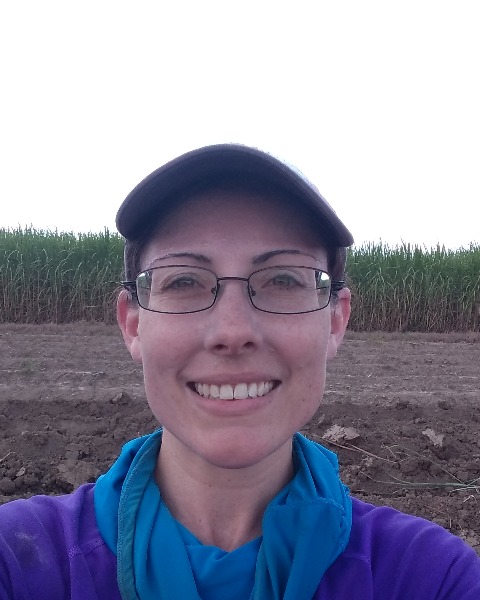10-Minute Paper
Plant-Insect Ecosystems
P-IE: IPM - Field Crops 1
Sugarcane borer damage does not impact conspecific damage or yield in subsequent sugarcane ratoons
Wednesday, November 8, 2023
10:36 AM - 10:48 AM ET
Location: Gaylord National Resort & Convention Center, Maryland 5-6

Hannah J. Penn (she/her/hers)
Research Entomologist
USDA
Houma, Louisiana- RQ
Read D. Quentin
Statistician
USDA
Raleigh, North Carolina - RR
Randy T. Richard
Biological Science Technician
USDA
Houma, Louisiana
Presenting Author(s)
Co-Author(s)
Prior herbivore damage can alter a plant’s susceptibility to future herbivory and is mediated by the plant’s ability to regrow, changes in nutritional content, or differences in herbivore defense. In sugarcane (Saccharum spp.), herbivory by lepidopteran stem borers early in a growing season can increase the probability of conspecific herbivory later in the same season. Further, it has been suspected that borer damage to seed cane may influence stand density and yield. However, it is unknown if the indirect effects of prior borer damage can impact the probability of herbivory in in post-harvest aboveground regrowth. To evaluate this, we investigated the impacts of sugarcane borer (Diatraea saccharalis), or SCB, damage to seed cane and first year growth on conspecific damage, biological control potential, plant nutrients, and above-ground biomass in subsequent ratoons. We found that SCB-damaged seed cane (using either whole stalks or billets) did not impact aboveground biomass or the likelihood of later SCB damage. While we did see a significant impact of insecticide treatments on within-year SCB damage, we did not observe any differences in damage during subsequent years. Similarly, when we evaluated potential mechanisms of prior herbivory effects, we did not see any differences in sugarcane borer biological control or in plant nutritional content. Our data indicate that while SCB herbivory can impact yield in a growing season, impacts are not sustained post-harvest when above-ground biomass is removed.

.png)
